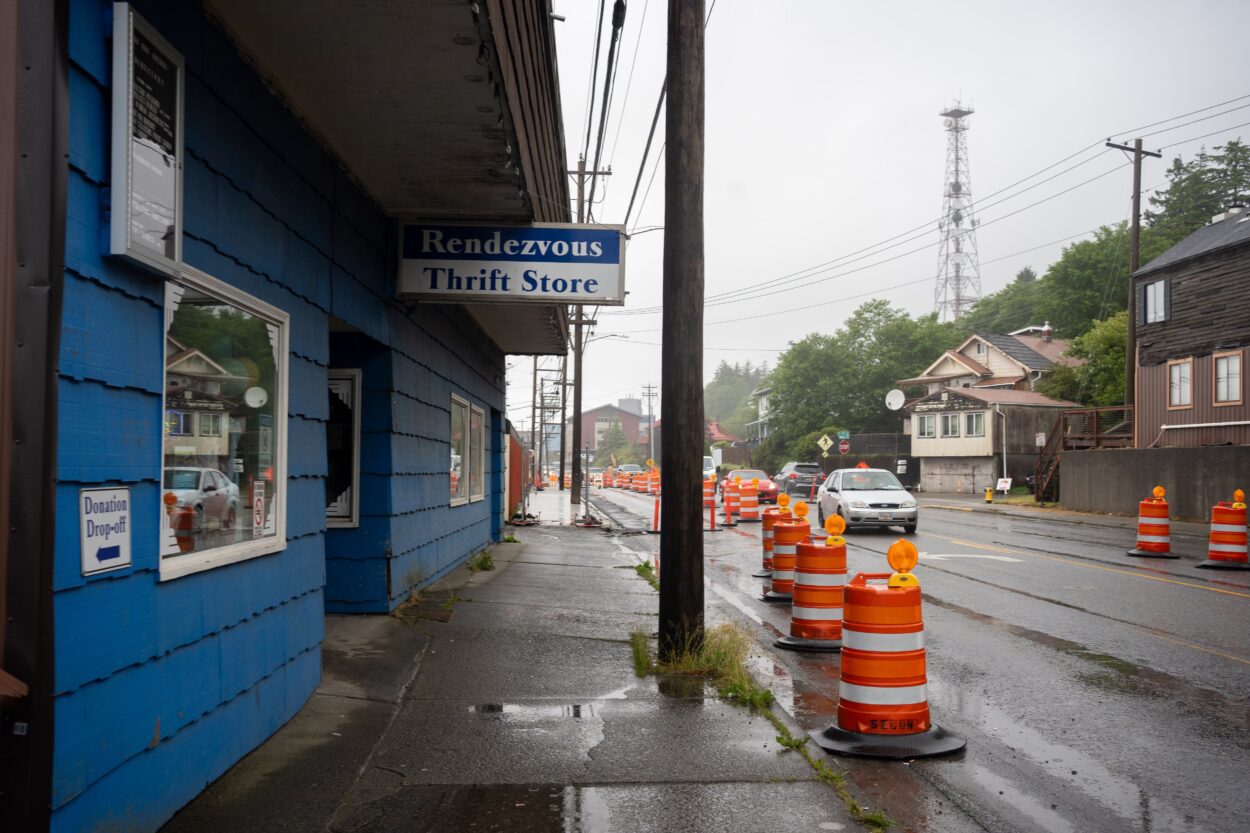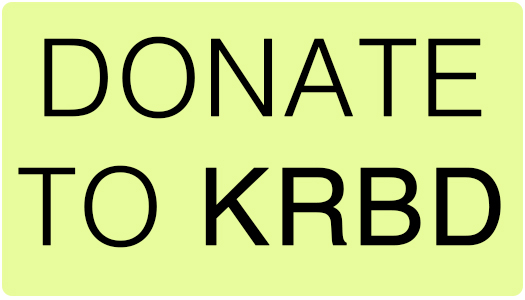
According to the U.S. Department of Justice, more than three-quarters of people released from state prisons end up back behind bars within five years. It’s called recidivism and its rates in Alaska are some of the highest in the nation. Meanwhile, the state and communities are developing tough-on-crime policies to try to reduce crime rates. A program in Ketchikan is using a different method to stop the revolving door.
Frankie Seludo was released from prison yesterday. The 30-year-old was in the living room of a squat, basil-colored house looking out over the narrows. Drew Herby, the house’s reentry coordinator, was helping him set up his cell phone.
They went shopping earlier, which Seludo said was a bit overwhelming. But there’s a lot he said he’s excited to do.
“I really can’t wait to get back to work. You know, I was doing really good before I relapsed,” Seludo said.
Seludo said he was clean for a while after he got released from prison the first time. But then he relapsed and caught another charge. Back then, he said, he didn’t really have anyone in his corner.
“I feel like the hardest part is getting out, you know, getting out and having people behind you,” he said.
Now, he said, it’s different. He’s the newest resident of Ketchikan Wellness Re-entry’s transitional housing. It’s the only dedicated housing for reentrants in the community. There are currently six rooms. Reentrants are referred by their lawyer or probation officer, often for a slightly shorter sentence if they fit the criteria. It’s under the umbrella of the Ketchikan Wellness Coalition and grant-funded by a hodge-podge of funds from Alaska Behavioral Health, the Ketchikan Indian Community, plus rent from the residents.
The term “recidivism” has been thrown around a lot in Ketchikan. The city recently upped the penalty for misdemeanors like disorderly conduct. It’s the latest move by the city council to target crime and homelessness, and the councilman who introduced the higher penalties said it’ll act as a deterrent. The U.S. Department of Justice has said there’s no evidence that heftier punishments deter rising crime rates. In fact, according to the Department of Justice (DOJ), they could increase recidivism.
The common thread among all the people staying at the reentry house in Ketchikan is that they have all spent a long time in jail, usually on a felony.
Part of Herby’s job is to offer support. Basically, to help the people here like Seludo – she calls them clients – not do anything that would send them back to jail. When Seludo said it’s important to have people behind you – Herby is one of those people.
“I don’t care what Frankie did,” she said, looking across the room at Seludo. “I don’t care if he spit on your mom and pushed down your grandma. That’s not who he is. He is a really good person, and I’m here to let him see that and to let everyone else see that, because I’m tired of people being put down.”
Herby said one of the hardest parts of reentry is that you don’t really feel like a person. You’re alienated. She said that can be a major reason people reoffend.
“Everybody’s just looking at them like, ‘Well, why don’t you just do it? It’s not that hard,’” Herby said. “When you make yourself a reputation and you commit a crime, especially in a small town like this, it is very hard.”
Many of Herby’s clients are recovering from addiction.
“So they don’t have any idle time,” Herby explained about the program. “Because when you have idle time when you are a recovering addict, you tend to make bad decisions. So we don’t give them the opportunity to make bad decisions.”
The program offered at the house isn’t easy, Herby said. When she gets a new client, she picks them up, takes them shopping for groceries, a cell phone, an ID, whatever they need. Then, they offer classes on how to live – things like budgeting, cooking, and parenting.
Residents spend the first weeks in the house looking for jobs and picking up shifts at Rendezvous, a thrift store in town. Everyone in the house works there until they find a job. By the way, 24 hours after being released, Seludo had already found another job. Along the way, Herby helps them stick to their probation rules. In the later months, they pay rent so that when they leave, they have a rental reference.
“I have successfully transferred four people out into their own apartments,” said Herby, who has been the house’s coordinator for less than a year. “They’ve gotten their kids back, and they’re doing really good and still on their path to recovery.”
In that time, two former residents went back to jail, according to Herby. One got a new charge and the other went back willingly because he didn’t want to do the program.
But Herby said she lives for texts from former residents in the community – the ones that say things like ‘I got a new job’ or ‘I got custody of my kids again.’
This is partly because she’s one of those success stories herself.
“I have coming up on seven years clean. I’ve been to jail for theft, drugs, burglary, all sorts of stuff,” said Herby.
She said she was a three-time felon. She’s from Wasilla but was released from Ketchikan Correctional Center in 2018. She didn’t know anyone or where to start. But she got accepted into KAR House, a now-defunct local treatment facility. And there she met Steve Hayburn, the vice president of the also now-defunct First City Homeless Services.
“He looked at me like I was a person, not a file or a piece of paper or just a junkie, and it really gave me the hope that I could do better,” said Herby.
And thanks to that support, she was able to get a job.
“I started out cleaning toilets at the Gilmore, and then I moved to Napa, and then Pacific Pride, and I got offered this opportunity,” she said.
She got clean. She got custody of her three kids. She got married. She had a baby. She won the state’s 2024 Outstanding Professional of the Year for alcohol and drug prevention.
And she said that support and resources for addiction are the only criminal deterrents that get results.
“We’re the ones doing the petty crimes, because that’s what we think we can get away with,” she said, referencing people in active addiction. “And the worse our drug habit gets, or the worse we are off, the worse we’re going to get. And you think slapping us on the wrist and making us pay $500 at bail and do it 27 times is going to make a difference? I’m a three-time felon. It took a long time for it to make a difference for me.”
Although Herby is clean, some people in her life aren’t. She practices tough love, which is hard – and emotional.
“You have to love from a distance. ‘I love you, but you’re not welcome at our house right now.’ ‘I love you, but I can’t give you money right now.’ ‘I love you, but you can’t see your child right now.’ And being that person is one of the hardest people to be,” she said.
When asked what she would say to someone who was in active addiction but wanted to get clean, she teared up.
“I guess the only thing that I can say is, I’m here.”
A recent study on recidivism in Ketchikan by a University of Colorado Denver student showed that resources, especially housing, are the biggest barriers to reentry. Ketchikan’s reentry house is in the middle of expanding. They’re hoping to build out to 12 rooms.
Get in touch with the author at jack@krbd.org.








